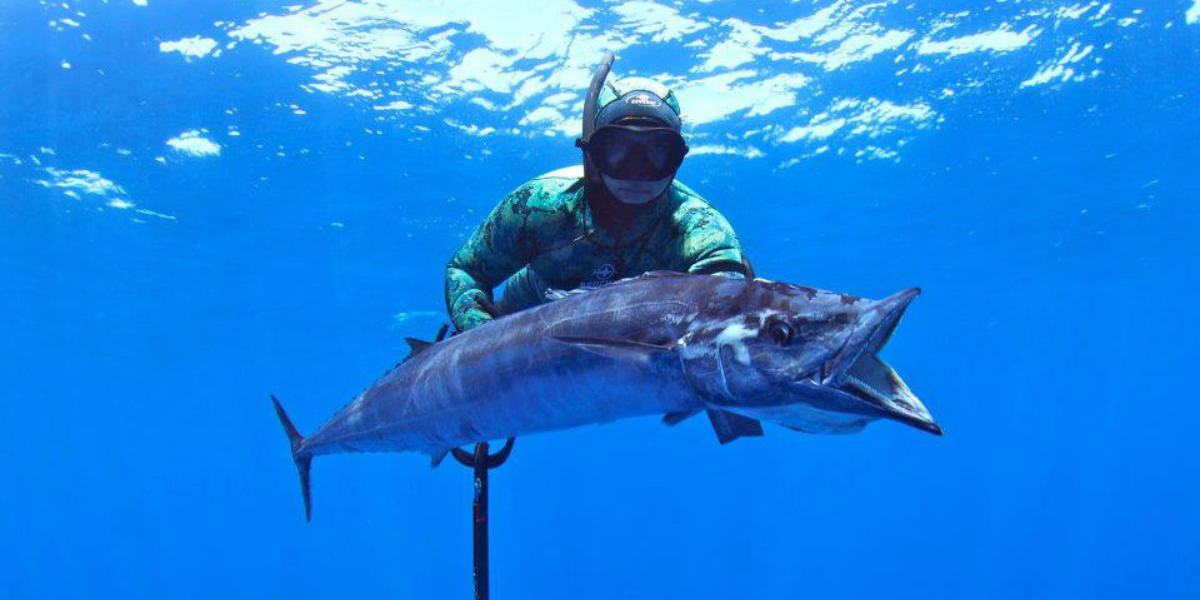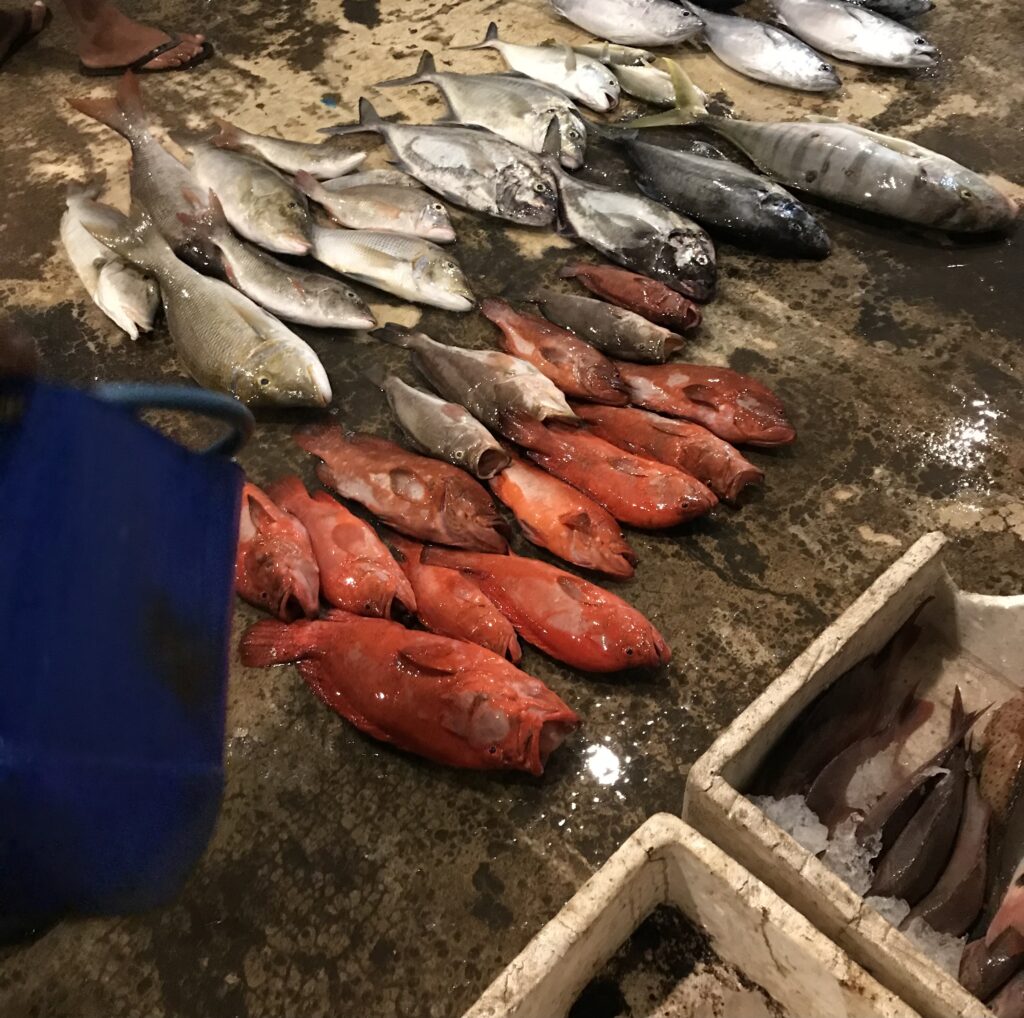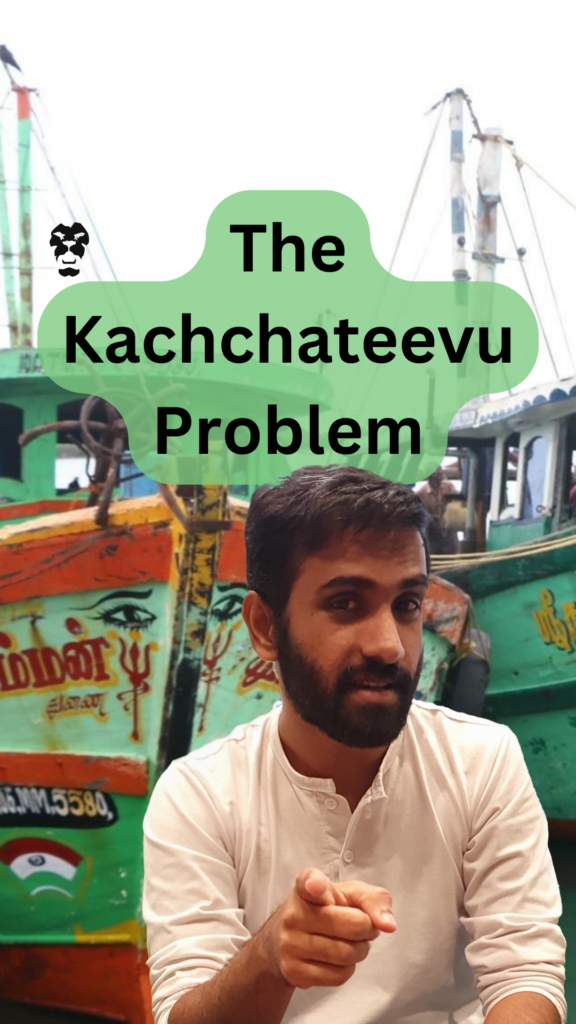
In 2017, a photo of a Humphead Wrasse (Cheilinus undulatus) killed by spearfishing at the Unawatuna Beach stirred widespread attention on social media. This fish is listed as endangered under the Red List of the International Union for the Conservation of Nature (IUCN), which sets the conservation status of species.
However, a fish like Humphead Wrasse, with a bump on its head and diamond patterns of greens and blues on its body, is more worth alive than dead at the end of a spear gun. They can weigh up to 190 kilograms and grow up to six feet long. Their 30-year lifespan is often cut short before they reach maturity.
Following the widespread attention the photo and the action received, the government sought out laws to ban the act of spearfishing. And accordingly, spearfishing, the hunting of fish underwater with spear guns and diving gear was banned in Sri Lanka six years ago.
However, discussions have begun yet again in February this year, by the Ministry of Fisheries to legalise the act — once again.

A Blanket Ban Is Imposed
In 2017, recognising the importance of conserving such endangered species, the National Aquatic Resources Research and Development Agency (NARA) sent recommendations to the Ministry of Fisheries, resulting in the banning of spearfishing in Sri Lanka.
Accordingly, spearfishing was banned as per the Extraordinary Gazette No. 2008/31 – Prohibition of Use of Spears in Fishing Operations Regulations No. 1 of 2017, under the Fisheries and Aquatic Resources Act. The Gazette states, “no person shall use or possess, or have on board any local fishing boat, any spear gun (legally defined as a “gun used to catch fish by shooting with a pointed spike”).” Additionally, “no person shall engage in any fishing operation using spear guns or hand-held spears within Sri Lankan Waters.”
Just three years after the ban, the first proposal to remove it came from the State Sports Minister Thenuka Vidanagamage. The plan was to permit tourists to spearfishing “without causing harm to protected species”, after claims that tourists questioned why they are not allowed to engage in this “popular sport”. However, the evidence presented by experts led to the decision not to lift the ban.
What’s Wrong With Spearfishing?
Spearfishing with scuba gear is prohibited in many parts of the world; including Europe, Caribbean nations and Pacific Islands. This is because, unlike spearfishing on breath-hold [the method that does not utilise any diving equipment], scuba gear allows hunters to swim deeper, chasing after fish that seek refuge. This gives the divers an unfair advantage and allows them to spend longer (up to an hour) collecting as many reef fish as desired.
Recreational spearfishing typically targets large and colourful reef fishes, due to the ease at which they can be spotted and hunted.
Killing reef fish, such as the Humphead Wrasse, not only adversely impacts the aesthetic value of coral reefs that attract dive tourism, but also puts the entire ecosystem at risk.
“Some of the targeted fish include Parrotfish, Wrasse and some Groupers who are Protogynous Hermaphrodites, which means they change their sex from female to male at their reproductive prime. Taking away the big fish would mean there will not be a next generation of that species,” said Lenin De Silva, marine researcher and President of the Marine Environment Conservation Society of Sri Lanka.
“Targeting keystone species such as the herbivore Parrotfish that graze on algae can lead to overgrowth of algae in the reef that can ultimately cause a decline of coral. Once the coral dies out, the reef will be replaced by algae,” he added.
Is There A ‘Sustainable’ Aspect To Spearfishing?
“Spearfishing allowed us to target the species of our desired catch,” fisherman and diver, Ranjith, told Roar Media. Ranjith has been engaged in spearfishing and diving in Dehiwala for over 44 years now. “And there is no by-catch (a fish or marine creature that is caught unintentionally during fishing) or impact on non-target species like there is with other fishing practices. We would welcome the protection of fish species that are vulnerable and refrain from targeting protected species. But, we ask for the ban on spearfishing altogether to be lifted.”
While the sustainability aspect of spearfishing does come from the fact that this is target capture, resulting in little to no by-catch, this is the same reason why it puts vulnerable species at risk.
It is the fate of the Tomato Hind that makes one wonder if granting legal protection to species alone is sufficient in protecting them.

In 2017, the Tomato Hind became a protected species under the Fisheries and Aquatic Resources Act. It is prohibited to catch, possess, transport, purchase, exhibit for sale, sell or export the Tomato Hind (Cephalopholis sonnerati), known as Ran Thambuwa in Sinhala, within Sri Lanka or Sri Lankan Waters. And yet, they are still openly caught and sold in fish markets today, with attempts to even export.
“The Tomato Hind has a symbiotic relationship with Cleaner Shrimp,” De Silva said. “The shrimp removes harmful parasites from the fish’s body and in return, the shrimp gets much-needed food. For ornamental fish traders to keep making an income from the shrimp, the Tomato Hind must stay. If the Tomato Hind goes, so does the Cleaner Shrimp.” De Silva added.
Following the ban on spearfishing in 2017, the Sri Lanka Sub-Aqua Club, a scuba diving club, appealed to the Minister of Fisheries to legally protect 15 large coral fish including the Tomato Hind and theHumphead Wrasse.
However, only one from this list, the Tomato Hind, was granted legal protection to this day as the Department of Fisheries was not certain of the threats towards the rest of the species without a study to assess the situation locally.
The path ahead – ban or no ban?
While many find the act of hunting land animals outrageous, the same sentiment is not shared when it comes to fish. This detachment from the ocean often reflects in conservation policies.
“Sri Lanka should not promote itself as a blood sports destination. We need to be an ethical tourism destination,” said Dr Jagath Gunawardana, an environmental lawyer.
In a country where regulation and enforcement of laws are poor, it is ironic that a blanket ban is the best way to ensure that vulnerable reef fish populations are protected from spearfishing.
“Even six years into the ban, the Ministry of Fisheries has not properly enforced the law,” Gunawardana said. “The relevant offences under the Fisheries and Aquatic Resources Act need to be made cognizable — especially concerning where a police officer may arrest a suspect without a warrant — so that other authorities can also take action against illegal spearfishing,” he added.
Perhaps then what Sri Lanka truly needs is a discussion on strengthening the existing ban to ensure that it is not being illegally practised.







